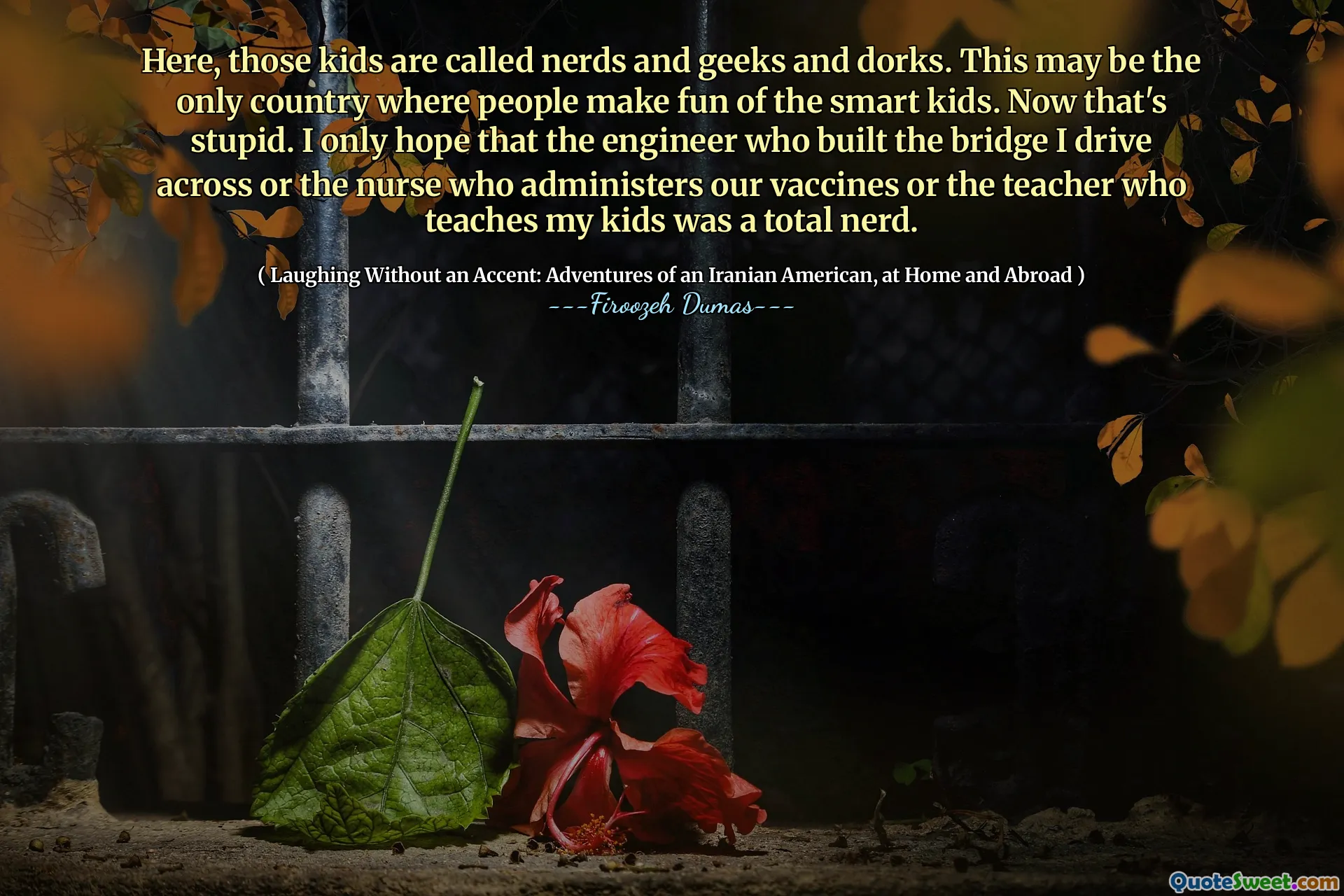
Here, those kids are called nerds and geeks and dorks. This may be the only country where people make fun of the smart kids. Now that's stupid. I only hope that the engineer who built the bridge I drive across or the nurse who administers our vaccines or the teacher who teaches my kids was a total nerd.
This quote highlights a paradox within societal attitudes towards intelligence and academic pursuits. In many cultures, especially within the context of American society as depicted here, children who excel academically or display intellectual curiosity are often labeled negatively—terms like nerds, geeks, and dorks carry pejorative connotations. The speaker points out the irony that, in this particular country, making fun of smart kids is common, despite the fact that many crucial professionals involved in infrastructure, healthcare, and education—such as engineers, nurses, and teachers—are often those very 'nerds' who are demeaned in childhood. Recognizing this discrepancy prompts a reflection on societal values. The respect and admiration we sometimes accord adults in these roles seem disconnected from how we treat children who aspire to or excel in those areas. The quote invokes a sense of missed opportunity for fostering self-esteem among the intellectually gifted, implying that deriding these children may hinder future societal progress by discouraging potential innovators and caregivers. A poignant takeaway is the importance of shifting perceptions—viewing intelligence and scholarly dedication not as social liabilities but as assets essential for the development of a nation. Celebrating those who contribute intellectually and valuing their dedication shields society from the shortsightedness of mockery. It encourages a culture that recognizes and nurtures the talents that build and sustain our communities, rather than condemning or excluding those who embody them. Ultimately, the quote challenges us to re-evaluate our stereotypes and biases against intelligence, recognizing their vital role in collective progress and well-being.






